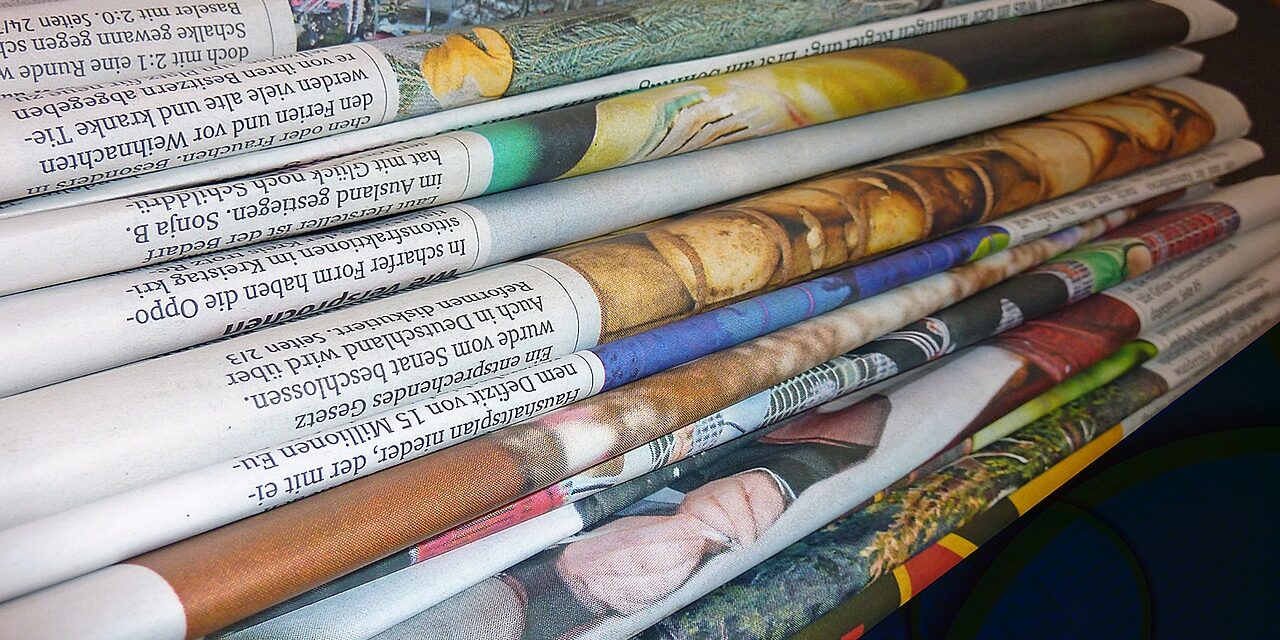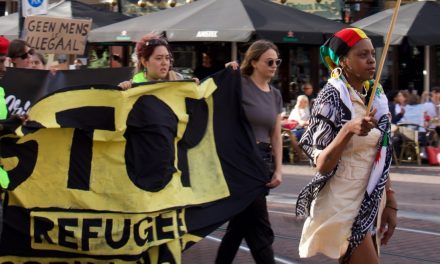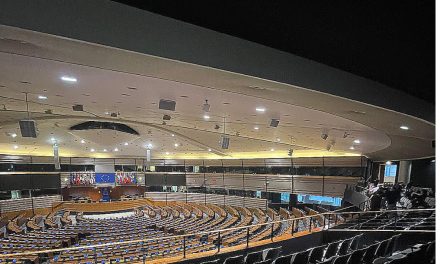The unequal struggle between freedom of the press and freedom of religion
Paris was shocked when twelve employees of the satirical weekly Charlie Hebdo were murdered in early 2015. The magazine had long been a target because it published cartoons of the Prophet Mohammed. At the end of 2020, heavy sentences were imposed on fourteen accomplices in the mass slaughter. The lawsuit took place in a year in which it has become clear that France and Europe are far from being rid of terrorist attacks by Islamic extremists. All over the world, freedom of the press and religion remain sensitive issues. What is the relationship between freedom of religion and freedom of the press? Should cartoonists and journalists be more careful about what they publish?
Three weeks after the trial began, on September 25, 2020, a Pakistani Islamic extremist attacked two people with a knife at Charlie Hebdo’s former editorial office in Paris. In the sixth week of the trial, on October 16, French schoolteacher Samuel Paty was beheaded by a Chechen refugee for initiating a debate on freedom of expression, showing cartoons of Mohammed in class. According to the statement of the France president Macron the murder of the teacher has deeply affected France. Not only because of the human tragedy, but also because the deepest French ideals have been touched. According to the republican ideal, all French are equal, regardless of skin color, religion, ethnic or social origin. The condition is that they respect republican values, such as freedom of expression and the separation between church and state. In this way, different population groups can interact peacefully with each other. At school, all children learn the valeurs de la République, the values of the Republic. Macron said after Paty’s death, “he was beheaded because he wanted to teach his students the ideals of freedom and reason.”
If the freedom to publish articles, columns and cartoons comes under pressure, will cartoonists and journalists still be able to do their work? Bart Schaafs is a Dutch cartoonist and publishes in ‘Knack’ (a Belgium magazine) and ‘De Morgen Magazine’, among others. Both the attack on Charlie Hebdo and the murder of Samuel Paty made a deep impression. “When I heard about the attack on Charlie Hebdo, I was shocked and sad. Because of the beheading of Paty I was now also angry and disappointed. Why? Because we still haven’t gotten any further in the discussion than this. It’s still too hard to talk freely about religion.”
So where is the limit with the publishing of cartoons and satire? Shouldn’t cartoonists be more cautious about what they publish? “By rights I think that everything is possible and allowed, but at the same time as a draftsman you also have a kind of responsibility. You can’t just say “yes, but it is humor”. To be honest, I think that is an insult to my field. There is also such a thing as context and intention. Who do you want to reach, what do you want to achieve and with your cartoons do you find the people you wanted to reach?”
Not only cartoonists have to deal with ethical considerations when publishing. Journalists worldwide are constantly faced with certain moral and ethical considerations. Janny Groen is a Dutch freelancer and has also worked as an investigative reporter at De Volkskrant. She agrees that you have a responsibility as a journalist. “In my work as a journalist, I am not sensitive to the vulnerability of others. If you don’t write about it, the limit shifts. This limits the freedom to publish. I think you should make the voices heard (and show both sides of the argument) and let those groups tell their side of the story. Also ask them the question ‘where is the boundary?’. And you should always try to find a wide range of sources.”
Ken Paulson is the director of the Free Speech Center at Middle Tennessee State University. Paulson has written on issues related to free speech and a free press, freedom to assemble and to petition the government, and freedom of religion.
As a Dutch journalist, according to Groen, you are less likely to have to deal with restrictions on freedom of the press. The situation is different in Tanzania (Africa). The Tanzanian journalists Alpha Nsemwa and Kulthum Maabad regularly have to deal with moral considerations all the time during their work as journalists.
Alpha Nsemwa works for the Daily News Tanzania. He is free to write about anything, but it does not always work that way. “If you put it into perspective I am working for the government. The Daily News is a governmental platform. We are not investigative journalists. Sometimes I’ve written things and my editor said it couldn’t get published. I had to change the angle of my story so afterwards it could still be published. We have a lack of freedom of expression, but the situation is not that bad. We aren’t in a position where we can’t do our job or where the government is filtering our stories. We write, we conduct journalism, and we cover religion. But no, there is no complete freedom of media.”
Nsemwa has never written something that created chaos or brought him into a conflicting position. Most of the time he deals with human interest issues. “Last August I wrote three stories about gender-based violence. I wrote stories about women who have successfully managed to move away from violence and now they are living their own lives. The stories from the different woman I spoke to were very interesting. I try to put myself away from politics. It’s kind of complicated, just like the dialogue about politics in our country is very conflicting.”
In the past it was very common for Tanzanian journalists to disappear after publishing about complicated topics. “For the last three years no one has been killed because they are reporting about topics against the government. We used to have those kinds of problems back in the days, but if that was still the case, I wouldn’t be talking to you right now. I would be scared. Although the Tanzanian government is not giving us the complete freedom, we can still be journalists. But we need to be careful about what we publish. I believe that we are the gatekeepers between the community and the information that we publish.”
Kulthum Maabad is a freelance journalist with eleven years of experience. She writes about different topics: it depends on what her readers need at that particular time. Her last employer was the BBC. There is a difference between writing for local media and international media. “I remember that there was a time when I was sent to the parliament as a journalist for the international media. When I was there, there was a big conflict between the ruling party and the opposition party. There were some places where you weren’t allowed to record, but I knew I couldn’t go back without answers. The opposition party decided to leave the parliament, they were rioting outside. I was running towards them, about what they were saying. Most of my colleagues were inside the parliament because the president was giving a speech at that time. It was very important. But I wanted and needed to show the other side.”
Maabad thinks the situation about freedom of religion and freedom of the press is getting better, but at the same time it is also getting worse. “It is getting better in a sense that there is social media. People can speak out what they believe in. On the other hand, it is hard to get your story published in the old media forms, like papers and television, because they are owned by different people. Some news agencies are owned by politicians or businessman who support a certain party. So social media is helping, but also dangerous because not everyone with a camera or a phone is a journalist. The total freedom of sharing stories on social media could be damaging. Not everyone is thinking about morality, laws, ethics or attention to details.”
Maabad and Nsemwa both agree that journalists need to be more careful with what they publish. Maabad: “We can’t be amateurs. We can’t just write what we feel. We don’t have that right. What we feel can affect other people with what they feel. One article can reach one million people and affect them all. We have to be sensitive, ethical and we have to balance our stories.”
Cartoonists and journalists have to deal with a lot of moral and ethical considerations. There is freedom of the press, but some topics are still hard to publish about. According to Groen, Nsemwa and Maabad e need to have empathy and try to understand each other. But in the end, the most important thing is respect. People should respect one another while publishing about religion and both sides of the argument need to be shown. Because what is the boundary while publishing about though topics?




